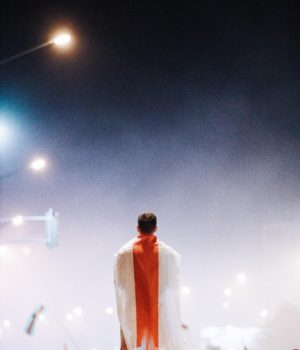Written by Joseph Carrick
The small, often overlooked, nation of Belarus, known to history as “White Russia” appears to live up to its name in contemporary history. Even after leaving the Soviet Union they remained “the last dictatorship” due to the authoritarian post-Soviet government. Belarus has an uncomfortable history of violently suppressing protestors – more so than even the United States’ paramilitary force that is the police system. The political unrest that began in the capital city of Minsk has been labelled a crisis by both domestic and international journalists.
The protests are in response to 26 years of Prime Minister Lukashenko’s rule. The crackdowns initially were, and continue to be, harsh against the protestors. Lukashenko defends his rule, claiming that he has done nothing but bring Belarus into the modern age and if he were to go quietly, his supporters would be “massacred.” Why he does not allow elections if his rule is so benevolent to his subjects is a topic on which he notably remains silent. Belarus is also highly influenced by its neighbor Russia. Vladimir Putin is far from a freely elected politician, although he occasionally pretends to offer fair elections for Russians. Lukashenko and Putin have remained close over the years, and it is not entirely out of the question that Russian involvement may occur just as has happened in Ukraine.
In addition to the sudden upheaval, the Prime Minister seems only interested in stoking the flames. Maria Kolesnikova, the opposition leader and leading protestor activist is now detained at the Belarus-Ukraine border after being kidnapped in Minsk – something that even the state media has confirmed. Two other opposition figures have been detained in addition to Kolesnikova: Anton Ronenkov and Ivan Kravtsov, sending a clear message to the people of Belarus: the dictatorship will not go out without a fight.
The movement has several goals in addition to the resignation of Lukashenko, including the resignation of his entire government, new free and fair elections, release of all political prisoners, an end to police brutality, and a recount of previous presidential elections. As of September 9, it is believed that over 200 protestors have received some form of injury, at least 4 are dead, over 7000 have been arrested, and 50 are missing. The police forces have only claimed to receive 103 injured policemen.




